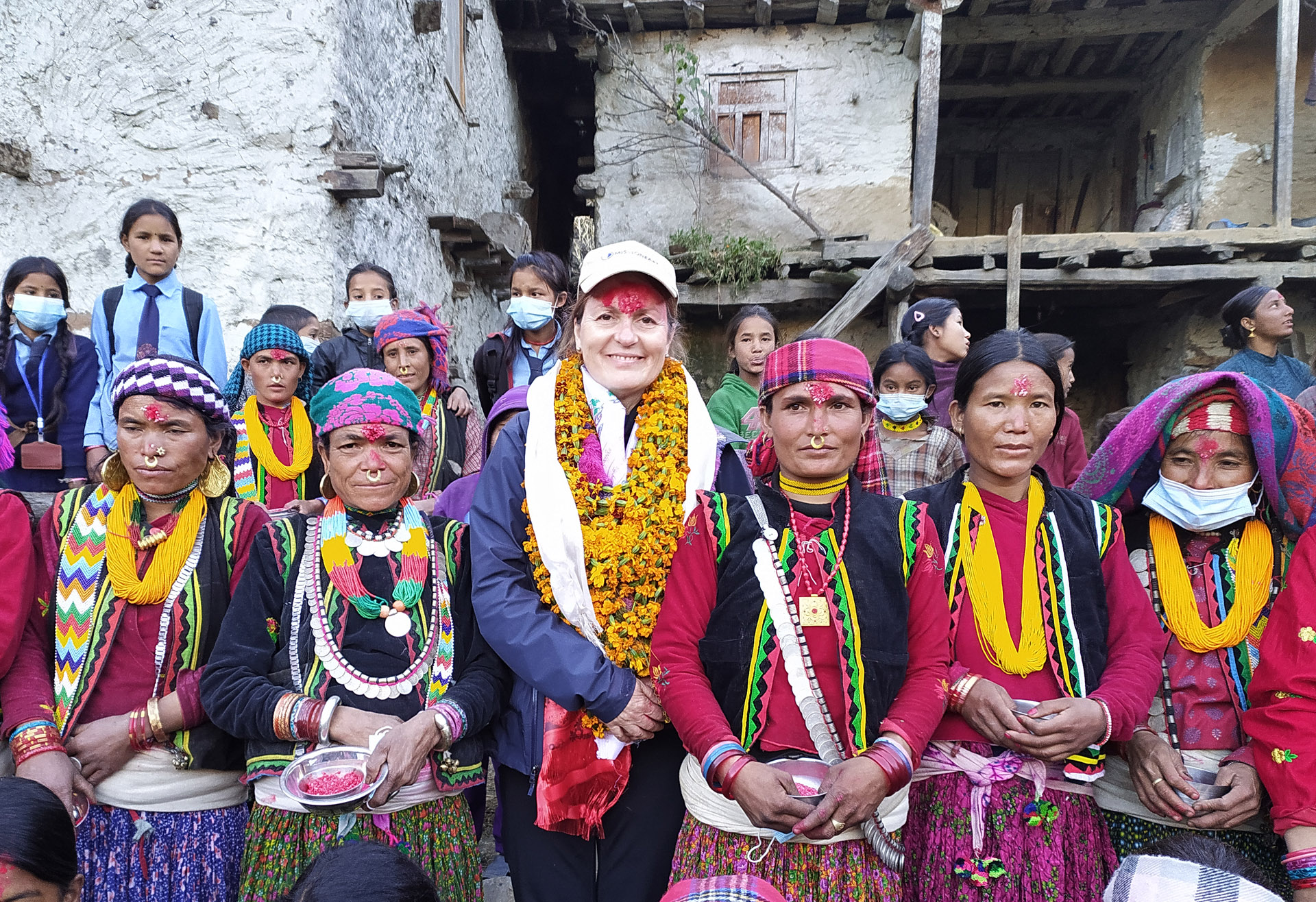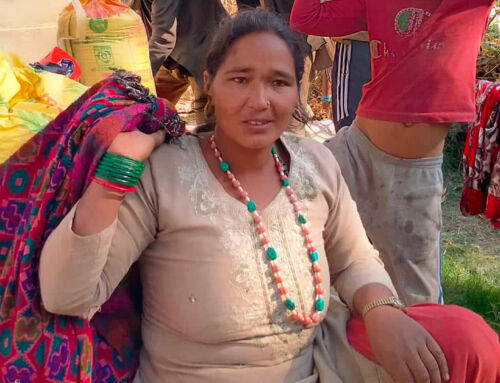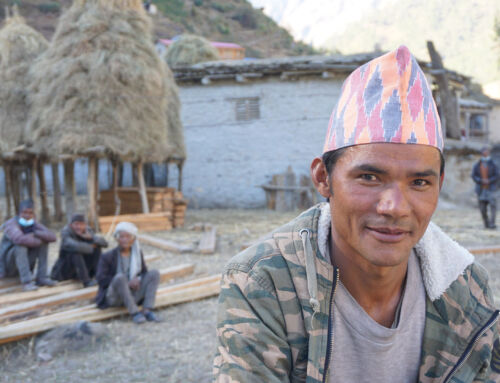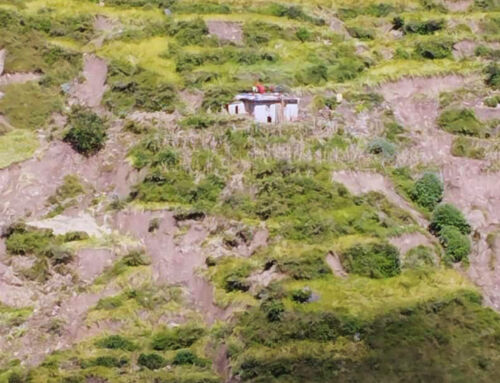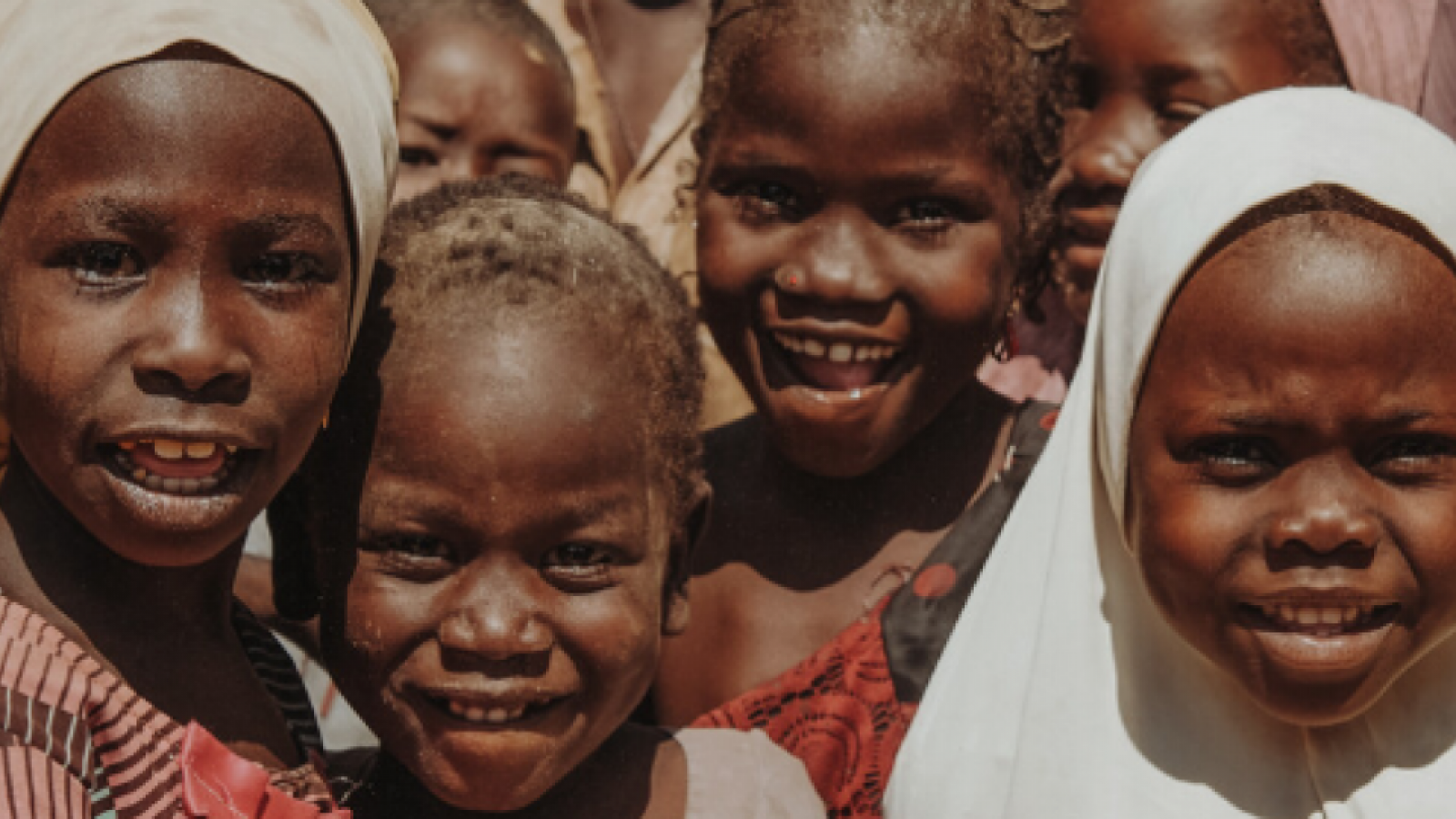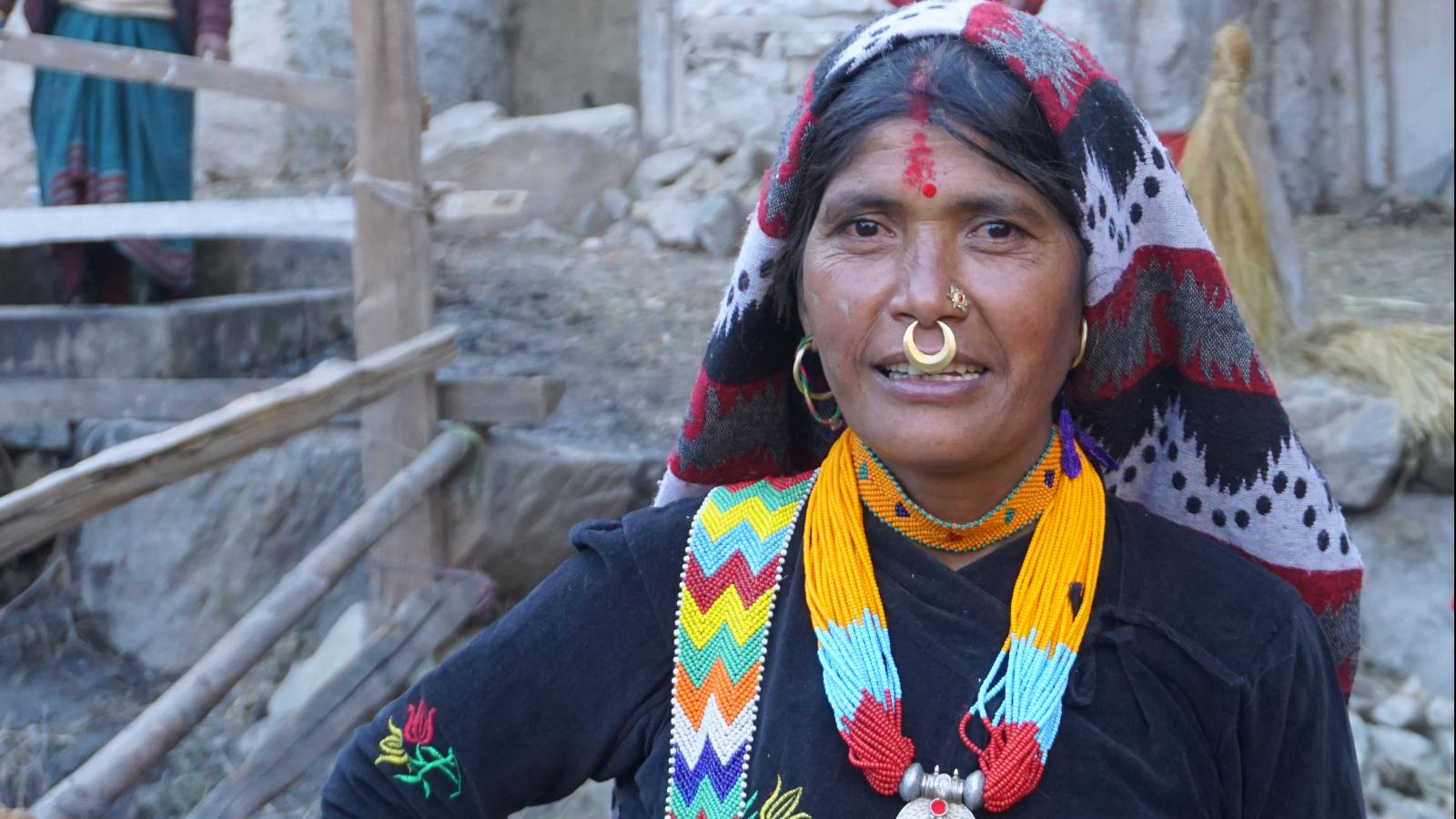– I have not seen so drastic an increase in income elsewhere before! With so little input! Managing Director General Betina Gollander-Jensen has visited Nepal and seen the poor multiply their income with the help of knowledge and support from self-help groups.
– I’m really surprised at how easily we can actually change people’s lives for the better. From the position of not being able to support themselves 3-4 months a year, they now suddenly have a minimum income every month. And we can do that with such few small changes.
Managing Director Betina Gollander-Jensen talks enthusiastically about her recent visit to Nepal, where she participated in various groups that Mission East supports. In total, Mission East supports about 1,000 families – 60,000 people – spread across many different villages.
– We are completely out in the most remote areas in northwestern Nepal, where there are no other international organizations, says Betina Gollander-Jensen.
The impassable terrain also meant that she, together with fundraising employee Fie Østergaard and local staff, had to walk for up to nine hours along narrow paths to reach the villages.
– In some places they had to cut stairs out of the mountain mass so that we could get out without falling into the very steep valley, she says.
Reading skills and human rights
But everywhere they went, they were surprised at the effect the relief work has. How little is needed to lift the local population out of poverty. Not least knowledge of how to cultivate sustainably and run a business.
Mission East proceeds according to the same concept in each village. Together with village leaders, the most vulnerable people are identified. Then self-help groups are formed for young people, for women and for people with disabilities. And then each group starts with the syllabus in the textbooks that Mission East has developed.
Betina Gollander-Jensen gives an example:
– A women’s group with 25 participants begins with learning to read, write and count. About half of all women in Nepal are illiterate. They then learn about human rights and how they can approach local authorities for services without being cheated.
– We have recently helped over 40 people with disabilities to get their disability benefits. This means, among other things, that they can also get school help for their children, says the general secretary.
Now earns up to 10 times more than before
The next step in the curriculum is that the participants get help to start a profession. And finally, they also gain knowledge on how to deal with climate change.
– What really struck me about all the participants I spoke to was how easy it was to go from not being able to make their finances work, until all of a sudden they had a reasonable income – and within only a few months.
Mission East also supports village groups:
– Here participants told me how they went from having two crops, rice and wheat, which are the traditional crops, to growing vegetables like cauliflower, Aubergine, potatoes, onions and chilli and thus increasing their income by 10 times.
How?
– Because they get a better price for their crops. Vegetables are simply sold at a much higher price in the local market. Those I spoke to had increased their income between 4 and 10 times.
– It is thought-provoking! And I have not seen it anywhere else before. That it is so drastic an increase in income! With so little input!
Nepalese will involve their neighbors
Some of the women had started a small grocery store, one traded in chickens, and again Betina Gollander-Jensen saw the same picture:
– They had got a really good business running!
At the same time, the Managing Director was moved by the Nepalese attitude:
– When I asked the women what they want for the future, they said they wished many more could join the group and start a business. They did not say: “It was lucky for me, and now I want more and more”. No, they started thinking about their neighbors and said: I feel sorry for them that they have not joined a group and I wish they could join too.
– It shows something about the cohesion of the Nepalese. They have a sense of place where they take care of each other. It is very touching and a cohesive force that we as an organization must support.

